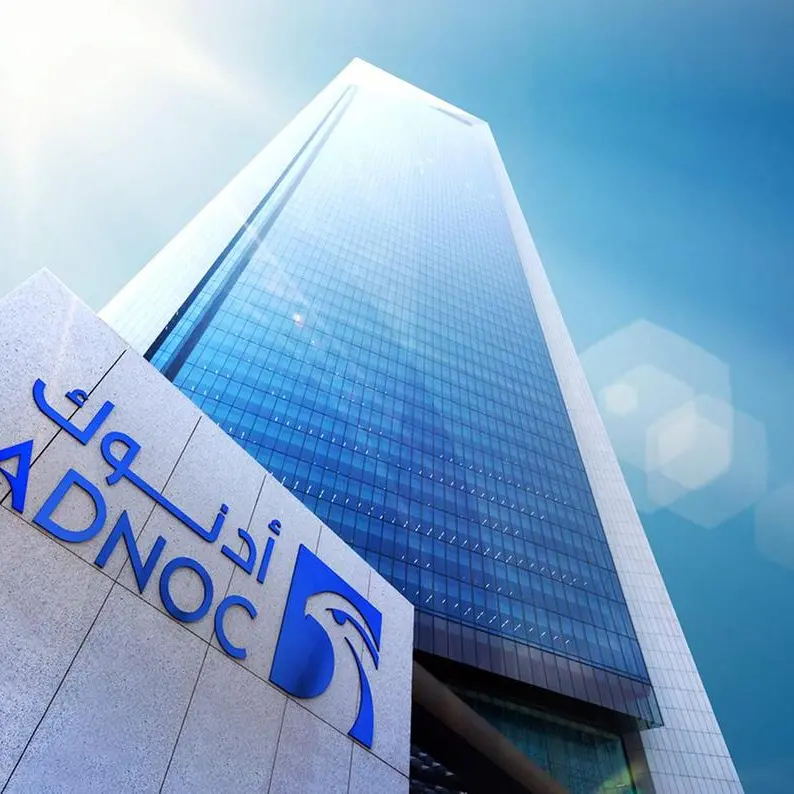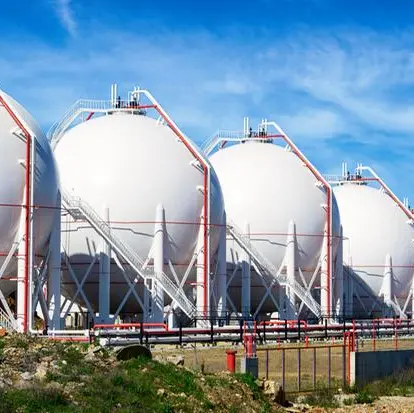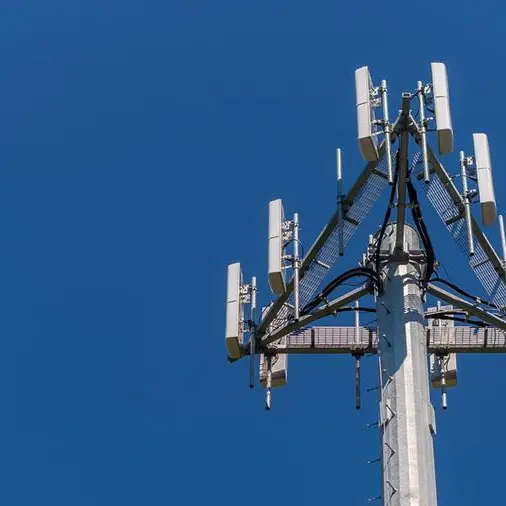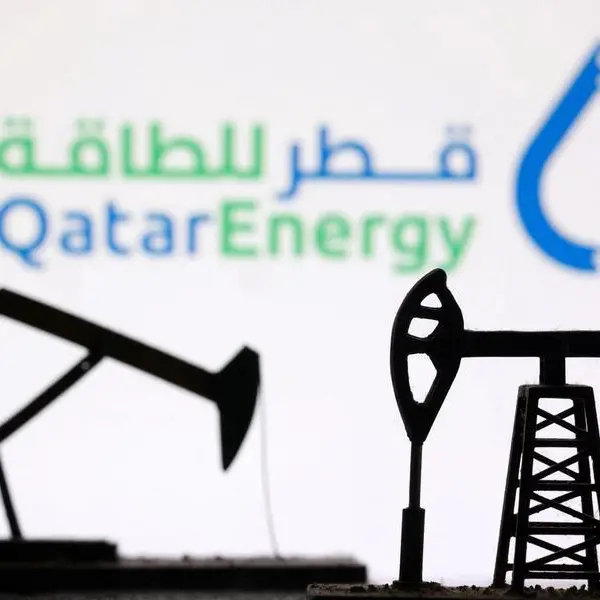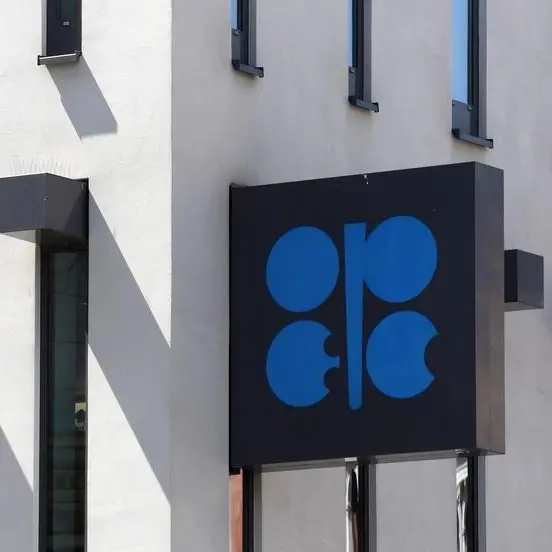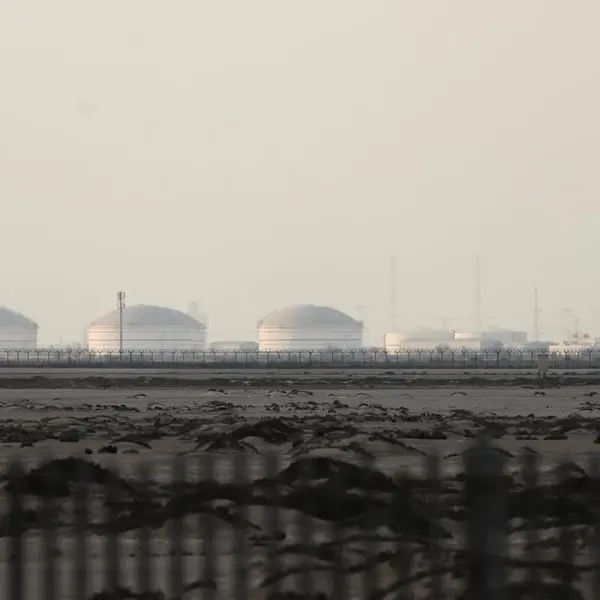While the world's eyes are trained on Egypt's historic presidential elections, the country's citizens are hoping the new president - whoever it may be - brings in much need political and economic stability.
Egypt's political transformation since Hosni Mubarak's ouster has been momentous but it has taken its toll on the economy and has deeply impacted key sectors that drove growth, disrupting the lives of every day Egyptians.
Protests, violence and political instability has disrupted economic life and has done nothing to improve employment rate, leading to frustration among many who felt the Arab Spring should have led to a better life.
The newly elected parliament and the Supreme Council of Armed Forces (SCAF) have already been at odds with each other. The elected body turned down reform plans and suspension of session for a week and also rejected the constituent assembly criteria agreed upon by the SCAF and political parties.
While things are heating up between government institutions, on the streets massive and frequent protests have led death and injuries and a state of insecurity that has shaken people's faith in the fragile political process.
"Egypt's economy has suffered short-term pain from the uncertainty over its political transition - but there's a chance for confidence to pick up after the presidential elections," said Jane Kinninmont, senior research fellow, Middle East and North Africa Programme at Chatham House.
Despite all the challenges and the setbacks the country faces, almost everyone's sold on the solid long-term potential of Egypt.
With 86 million people, Egypt is the most populous Middle Eastern country and has a strong record of entrepreneurship and economic development. International and regional investors are fairly comfortable with the country's long-term prospects and enormous potential.
The country's tourism, banking, real estate and energy sectors remain ripe for investments, as does it strong small-to-medium enterprises sector, which could play a crucial role in the economic turnaround.
But it's the short-term pain which is worrisome.
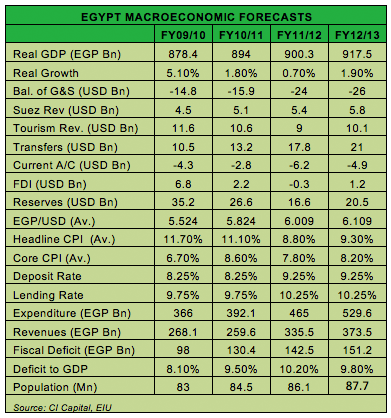
"Egypt's real GDP growth remained flat in 4Q2011 (at 0.4% year-on-year compared to 0.3% year-on-year in 3Q2011) as slower private consumption growth was compensated by inventory build-up," noted EFG-Hermes analyst.
"Private consumption growth slowed to 4.7% year-on-year compared to 6.4% year-on-year in 3Q2011, likely on lower growth in remittances and a widening contraction in tourism recorded during the quarter."
Foreign reserves have fallen from a high of USD43.3-billion in 2010 to around USD16-billion by April 2012, which is a cause for concern. Depreciation of the Egyptian pound has exacerbated the situation.
EFG-Hermes forecasts a devaluation of the EGP - albeit a smaller one - even if external support kicks in at the right time.
"The support packages largely provide one-off support to the BoP and we are yet to see a stabilisation of reserves pending a recovery in tourism and FDI," wrote EFG-Hermes' Ms. Malik.
It's clear that the economy will continue to struggle against the strained political backdrop.
"Growth in the 2011-12 fiscal year is expected to come in at less than 2%, and remain subdued through 2012," says an Oxford Analytica report.
"Agreement on the IMF loan will be a key step towards meeting the government's rising financing needs and reassuring foreign investors... The presidential election could also improve the investment environment if it takes place without any major security incident."
WHAT THE ANALYSTS SAY:
Analysts do see some signs of improvement in the economy, which are outweighing the negative impact of instability.
Here's a list of positives amid the gloomy sentiment:
* Net international reserves (NIR) rose for the first time since the revolution began early last year. CI Capital expects the trend to continue if Egypt can clinch the Saudi and IMF support deals. "April saw the first MoM NIR increase of 0.6% to USD15.2bn since February 2011, driven by the 0.9% increase in foreign currency reserves," said CI Capital in a note. "This came above our expectations of USD14.5bn and marks a lower year-on-year drop of 46%, down from a fall of 50% in March."
* CI data also expects investments to drop 2.6% year-on-year in the 2011-12 fiscal year, compared to 4.4% drop the year before and has revised its estimates upwards to EGP164-billion, up from EGP 155-billion.
* Tourism revenues in the fiscal year should also rise to USD9-billion from earlier estimates of USD8-billion, as there has been an upturn in resort areas, although Cairo city continues to remain weak. Cairo city hotel rates have fallen 25% since last year, according to an Ernst & Young hotel survey with occupancy rising 19%, while Sharm-El-Sheikh rates have risen by nearly 6%, with occupancy rates rising as much as 32%.
CI Capital has increased estimates for tourism revenues to reflect higher-than expected 1H11/12 receipts, but lowered goods exports due to weak global demand.
* "Improved spending and elevated investments are expected to drive up imports, thereby widening trade balance (TB) and balance of goods and services (BoGS) deficits. Higher imports; reduced Suez Canal receipts; and lower exports are expected to outweigh the rise in tourism revenues and transfers and to further widen the current account (C/A) deficit to USD6.2bn in FY11/12," CI Capital noted.
* The improved revenue scenario has encouraged CI Capital to raise fiscal deficit to GDP ratio to 10.2% rather than the 11.8% it expected earlier.
* EFG-Hermes expects Egypt's GDP grow to 2.9% in 2012 fiscal year, compared to near 1% contraction the year before, largely driven by private consumption, which will be supported by rising public wages and growing income from remittances and, to a lesser degree, tourism revenues. The IMF, though, expects a mere anaemic 1.5% growth for the Egyptian economy in 2012.
* Corporate lending improved for two straight months, rising 7.1% year-on-year in December and following it up with 5.6% growth (year-on-year) in January.
* Income tax revenues reached EGP38.2-billion compared to EGP20.4-billion during the same period last year, thanks to government incentives. This pushed aggregate revenues to EGP61.4bn up from EGP28.3bn in the first two months of the year, according to CI Capital.
* Growth in EGP denominated time and savings deposits, with March figures showing a 7.5% increase compared to 6.4% in February.
* The Egyptian stock market remains the best performing in the region, with a growth of 32% by May 20. The market fell nearly 50% last year, so there is still a long way to go before it can reach pre-revolution levels.
RAISING FUNDS
Local media reports suggest the government is looking to increase spending by 15% in 2012-13 fiscal year beginning July to spur economic growth. But it needs to balance that spend with increased financing.
Saudi Arabian and Egyptian governments have overcome their recent dispute when Egyptian citizens stormed the Saudi embassy in Cairo to protest against the detention of an Egyptian human rights lawyer in Saudi Arabia.
That has left a Saudi pledge for USD3.75-billion aid package undisturbed, and was marked by a USD1-billion deposit in the Egyptian coffers.
The Egyptian government also agreed on a USD119-million financing agreement with Italy, although much of the USD40-billion promised to North African states by G8 countries via the Deauville Partnership remains in limbo.
Another USD1-billion with the United States Government is delayed as both parties to disagree on the mechanism.
The International Monetary Fund loan of USD3.7-billion also remains a bone of contention.
Despite the Egyptian government's hopes that a deal is near, the IMF appears to be playing hard ball.
In a recent press briefing, David Hawley, Deputy Director, External Relations Department, International Monetary Fund said: "We have no fixed timeline for an agreement on a standby arrangement with Egypt. We stand ready to support a home-grown program that maintains macro stability and promotes inclusive growth, and enjoys -- and here's the key point -- the necessary broad political support, and includes adequate external financing from Egypt's international partners."
As Egyptians are distracted by the political challenges, economic reforms have been ignored.
"This has been a back-burner issue for much of the past year given other constraints," wrote Oxford Analytica. "Ultimately, much-needed foreign investment will require the removal of political interference in business in order to flow in substantial volumes."
The country continues to see nearly 500,000 Egyptians entering the workforce every year. And job-creation will be the foremost issue facing Egyptians.
CONCLUSION
Hopefully, an incident-free presidential elections and the selection of a new prime minister, would allow Egypt to focus on the issues that really drove Egyptians to come on the streets.A strong economic recovery would allow the political process to continue more smoothly, rather than in a harried way to appease popular sentiment.
Related article: Amr Moussa as president?
alifarabia.com 2012
